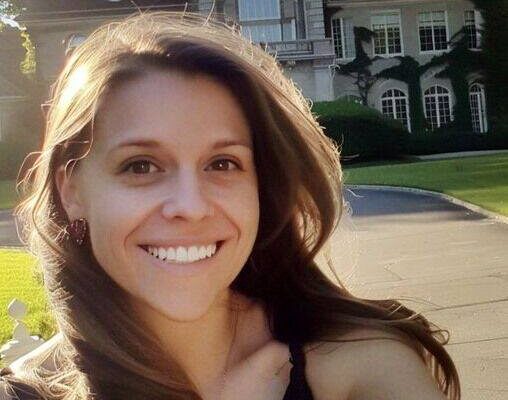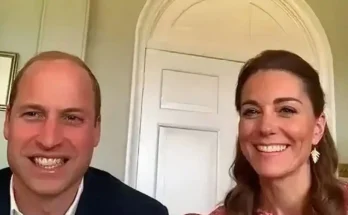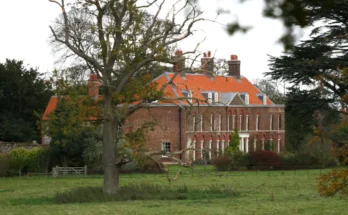I arrived for the reading of Mr. Morrison’s will and discovered that I was inheriting an entire estate. My astonishment knew no bounds, as I had no idea who Mr. Morrison was. Adding to the surprise, there was one condition in the will that not only shocked me but eventually changed my life forever.
Life has a way of throwing curveballs when we least expect them. For most, the idea of inheritance comes with thoughts of wealth, freedom, and an easier life. But when my name appeared in the will of a man I had never met, I quickly realized that the inheritance wasn’t what I thought it would be. In fact, it came with an unexpected twist—one that would alter my life in ways I never imagined. This is the story of how I became an heir to a fortune, only to discover that true wealth is never just about money.
Chapter 1: The Letter
It all began with a letter. It came on a Wednesday morning, tucked inside a plain white envelope. The handwriting was unfamiliar, and the return address was from a law firm in a city I had never visited. I almost tossed it aside, thinking it was just another piece of junk mail. But something told me to open it.
Inside, there was a single page: a letter informing me that I had been named the beneficiary of a will. The will of a man named Arthur Pembroke. I stared at the name in disbelief—Arthur Pembroke? Who was he?
The letter explained that I had been left a substantial inheritance from Mr. Pembroke, a man I had never met, and that the details would be discussed at a meeting with his lawyer.
Chapter 2: The Meeting
A few days later, I found myself sitting across from a stern-looking lawyer named Veronica Phillips. She was middle-aged, with glasses perched at the edge of her nose, and a calm, professional demeanor that suggested this wasn’t her first time delivering surprising news.
“You are the sole beneficiary of Mr. Pembroke’s estate,” she said, sliding a folder across the table. “It’s a considerable sum, but there are stipulations.”
I leaned forward, my heart racing. “Stipulations? What kind of stipulations?”
She took a deep breath before explaining. “Mr. Pembroke did not have any close family. However, he had observed your life over the years, and for reasons known only to him, he chose you to inherit his wealth. But he was also very specific about how the money is to be used.”
At this point, I felt a mix of confusion and curiosity. I had lived a fairly modest life, and the idea of suddenly inheriting money was hard to grasp.
“What does the will say?” I asked, almost nervously.
Veronica opened the folder and handed me a document. I scanned the contents quickly. The inheritance wasn’t just about the money—it involved a series of conditions that I had to meet. They were as follows:
- I had to relocate to Mr. Pembroke’s mansion, a sprawling estate tucked away in a remote part of the country.
- I had to maintain his charitable foundation, which focused on helping underprivileged children get access to education.
- Most baffling of all, I had to live in the mansion for at least one year, without selling, altering, or leaving the property.
Chapter 3: The Twist
The mansion was beautiful, but it was also isolated. The grand estate sat on hundreds of acres of land, surrounded by forests and fields. It felt like a prison at times, especially with the constant reminders of the will’s conditions.
I moved in as instructed, but quickly realized that the inheritance came with something far more unsettling than a few stipulations. There were strange occurrences at the mansion—whispers in the night, doors creaking open on their own, and a strange feeling of being watched. It became evident that Mr. Pembroke had a hidden side to his life.
One evening, while exploring the attic, I found a dusty journal hidden behind a loose brick in the wall. It was Mr. Pembroke’s personal diary. As I flipped through the pages, I discovered that the man had a complicated past. He had no family, but he had spent years observing people from a distance, watching them live their lives, and selecting someone he felt was worthy of inheriting his fortune. It seemed he had known me, even though I had never known him.
There were cryptic notes about “testing loyalty,” “understanding sacrifice,” and “the price of wealth.” The deeper I read, the more I understood: the inheritance was never meant to be a gift, but rather a challenge. Mr. Pembroke wanted to see if I could endure the isolation, the mystery, and the responsibility that came with his fortune.
Chapter 4: The True Legacy
As the year progressed, I found myself growing attached to the mansion and its purpose. I took on the responsibility of managing the foundation, and slowly, I began to see the impact it had on the children’s lives. But the mansion itself still haunted me, as though it were alive with the secrets Mr. Pembroke had left behind.
Eventually, I realized that the inheritance was not about the money or the mansion at all. It was about character, resilience, and a deep understanding of what it means to truly live. Mr. Pembroke had left me more than just material wealth—he had left me a legacy of introspection, responsibility, and compassion.
When the year came to an end, I was given the option to leave the estate and sell the mansion. But by then, I had changed. I didn’t need the money anymore. The fortune was in the lessons I had learned, in the lives I had helped transform, and in the way I had come to understand the true meaning of inheritance.
Conclusion:
In the end, the inheritance wasn’t what I thought it would be. It wasn’t about luxury or riches, but about growth and responsibility. Mr. Pembroke’s twist was a test, one that pushed me to look beyond the surface and discover what truly mattered. Through it all, I learned that sometimes, the greatest inheritance we can receive isn’t something we can touch—it’s something we can carry within us for the rest of our lives.
Final Thoughts:
It’s easy to dream about sudden wealth or inheritance, but as I learned, life’s greatest gifts often come with strings attached. What we choose to do with those gifts is what defines us.



